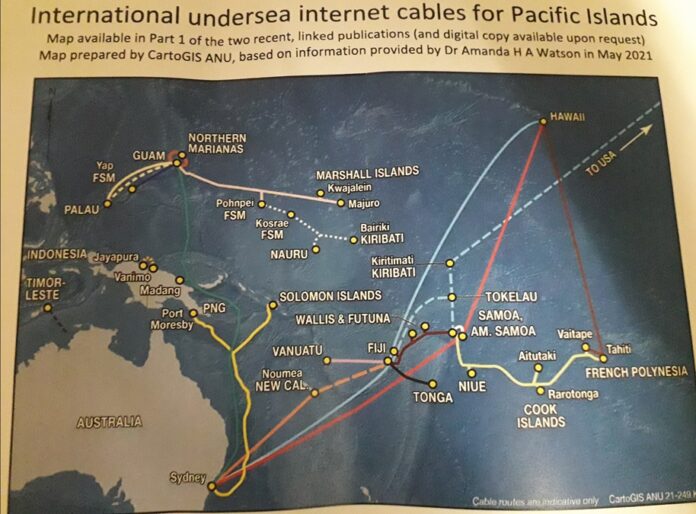
A RECENT report on undersea internet cables in the Pacific Island Countries (PICs) has highlighted the risks of cyber security, geopolitical issues and raised questions of reliability of the undersea cable.
Despite having met the increasing demand of internet connectivity across most of the Pacific Island Countries including Papua New Guinea, there are also concerns on the effects the transitions may have cause.
Presenting via zoom from Australia, Dr Amanda Watson from the Australian National University (ANU) pointed out issues stating that the increased internet bandwidth made available by new cables has increased the risks of PICs becoming victims of cyberattacks and cybercrimes.

The report also highlighted issues relating to geopolitics stating that the undersea internet cables has become entwined with geopolitics, diplomacy and donor engagement in the Pacific region.
Dr. Watson also highlighted reports from other scholars claiming that the increasing internet bandwidth availability, there are concerns raised regarding cybersecurity especially with the Chinese company- Huawei’s influence in the undersea cable in most of the PICs.
Other scholars have also raised concerns about the limited cybersecurity expertise in the Pacific region, citing ‘the lack of qualified people’ and the coordinated cyber capacity building is yet to properly reach the Pacific region.
Subsequently, Huawei was banned from participation in the rollout of the National Broadband Network and the fifth generation (5G) mobile network in Australia, and the 5G network in the United Kingdom.
Huawei has repeatedly denied the accusations of spying and links to the Chinese state and has offered to have its equipment tested.
Despite security concerns, the Government of Papua New Guinea has used Huawei Marine, a Chinese owned company for a domestic cable connecting coastal towns and islands within the country.
The domestic cable was funded through a loan from China, as well as accepting an Australian funded cable connection to Australia.
In 2007, four Pacific Island countries (PICs) including Papua New Guinea were connected to an international undersea internet cable.
Other PICs which are yet to be connected include Kiribati, Nauru, and Tokelau.
Online safety was also one of the related matters that were highlighted in the research report. The research has revealed that children are most concern about the encountering sexual or violent content.
The report in conclusion highlighted the various potential risks to reliability of cables stating that earthquakes and natural disasters can damage cables, with climate change likely to increase the frequency and severity of natural disasters.
“Those PICs with only one cable connection are particularly vulnerable to outages,” the report states.
